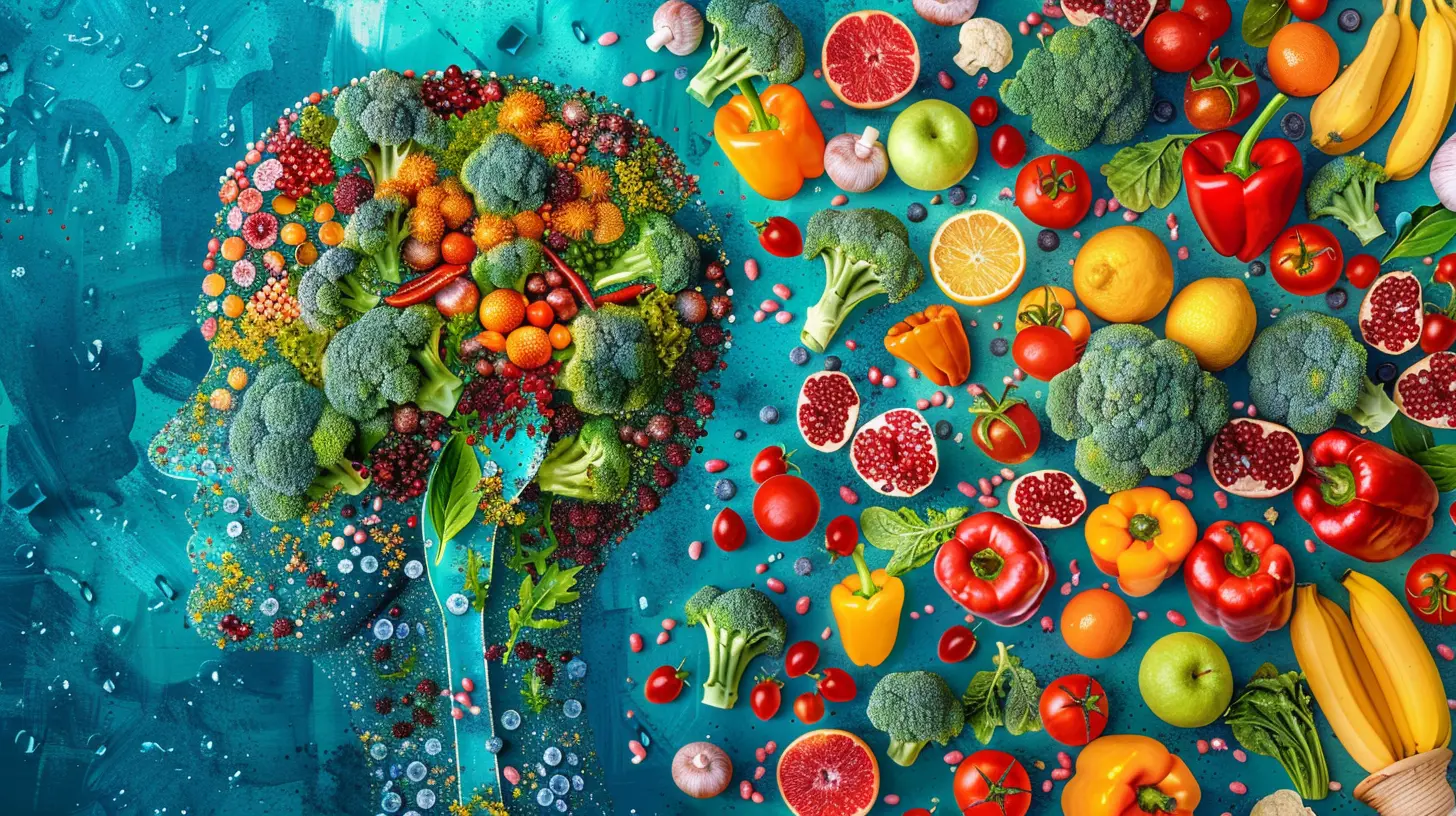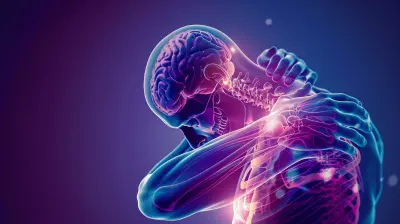How Mindful Eating Can Improve Gut Health
7 October 2025
Let’s get real—most of us chow down in front of our phones, laptops, or TVs, barely tasting what’s actually on our plate. We eat fast, we eat distracted, and often we eat way more than we need. Sound familiar? You’re not alone. But here’s the kicker—this modern habit of autopilot eating isn’t just bad for your waistline. It’s wrecking your gut health too.
So, what if I told you that the simple act of slowing down and paying attention while eating—aka mindful eating—could bring your gut back to life? Gut health isn’t just about tossing back kombucha shots and taking fancy probiotics. It starts with how you eat. Literally.
Buckle up, because we’re diving deep into why mindful eating might just be your gut’s new best friend.
What Is Mindful Eating, Anyway?
Mindful eating isn’t some woo-woo, sit-on-a-mountain type of practice. At its core, it means being fully present during meals. You’re intentionally tuning into every bite, chew, and sensation. It’s about noticing your hunger cues, savoring flavors, and—wait for it—actually stopping when you're full.Imagine eating like your dog eats after not being fed all day. That’s the opposite of mindfulness. Now picture eating like a sommelier tastes wine—slow, thoughtful, and with full attention. That’s mindful eating.
Simple idea, big impact. Especially on your gut.
Why Gut Health Matters So Damn Much
Quick gut check (pun intended): your gut isn’t just where food goes to die. It’s your second brain. Literally.Your gut is home to trillions (yes, trillions!) of microorganisms—bacteria, fungi, and other funky little creatures that help digest food, regulate hormones, boost immunity, and even affect your mood. This whole ecosystem is called your gut microbiome.
When your gut is happy, you feel energized, your skin glows, and your brain stays sharp. When it’s a hot mess? Bloating, constipation, brain fog, anxiety, and inflammation come knocking hard.
So yeah, taking care of your gut is crucial. And mindful eating? It’s one of the most powerful tools to do just that.
1. Slowing Down Boosts Digestion
Let’s start with the basics. When you scarf food like it’s going out of style, your body doesn’t get enough time to trigger digestive enzymes or signal fullness. You end up bloated, gassy, and uncomfortable. Sound familiar?Now, when you eat mindfully—chewing your food thoroughly, savoring each bite, actually tasting your meal—your digestive system gets time to do its thing properly. Chewing alone kickstarts digestion by releasing enzymes right in your mouth. The slower you chew, the better your gut processes food.
Think of your digestive system as a factory: mindful eating gives it time to assemble the parts, while mindless eating is like throwing everything at the machine and hoping for the best. Spoiler alert: that doesn’t work out well.
2. You Actually Hear Your Hunger (And Fullness) Cues
Raise your hand if you’ve ever eaten until you felt like a stuffed turkey on Thanksgiving. We’ve all been there. The problem? We often mistake cravings, boredom, or stress for real hunger.Mindful eating teaches you to pause and ask: “Am I actually hungry right now?” This simple moment of awareness can stop you from overeating and overwhelming your gut.
Your body has built-in hunger and fullness signals. But when you’re eating distracted, those signals get drowned out like a whisper at a rock concert.
By tuning in, you let your gut decide when it’s time to eat—and when it’s time to stop. That reduces the load on your digestive system and keeps your gut happier than a probiotic pill ever could.
3. Reduced Stress Equals a Healthier Gut
Gut-brain connection alert! Your gut and brain are in constant communication via the vagus nerve. And guess what? Stress throws a big nasty wrench into that connection.When you eat under stress, your body shifts into “fight or flight” mode, and digestion gets put on the back burner. That means less nutrient absorption, slower motility, and more GI issues like cramps or diarrhea. Yikes.
Mindful eating brings you into “rest and digest” mode. You’re calm, centered, and your body can actually focus on breaking down that kale salad or veggie-packed stir-fry. By reducing stress while eating, you give your gut a smooth runway to do its job.
4. Mindful Eating Supports a Balanced Microbiome
Let’s talk microbes—the good kind.Your gut microbiome thrives on consistency, nutritious food, and a chill environment. Constantly overeating, under-eating, or eating junk on autopilot messes with the delicate balance of bacteria down there.
When you practice mindful eating, you’re more likely to choose whole, gut-friendly foods like fiber-rich veggies, fermented goodies, and lean proteins. You’re also less likely to binge on processed crap late at night.
This consistent, nourishing approach supports good bacteria and keeps the bad guys in check. Over time, that means fewer digestive issues, better immunity, and even improved mental health.
5. Helps Identify Food Intolerances and Triggers
Let’s play detective. If your gut is throwing out red flags—bloating, cramping, or gurgling sounds that could wake the dead—mindful eating can help you zero in on what the heck is going on.When you slow down and pay attention to how you feel after eating, patterns start to emerge. Maybe dairy always makes you feel sluggish. Or gluten leaves you bloated no matter how much water you drink afterwards.
Mindful eating gives you that clarity. Instead of guessing, you can make informed decisions about what to keep (hello, quinoa!) and what to ditch (bye, cheesy pasta).
6. Curbs Emotional Binge Eating That Harms the Gut
Let’s be honest. How many times have you reached for chips or ice cream not because you were hungry—but because you were stressed, sad, or bored out of your mind?Emotional eating is real. And it’s one of the biggest gut health saboteurs out there.
Mindful eating forces you to pause and check in with yourself emotionally before reaching for that snack. Are you really hungry? Or are you avoiding something else?
This intentional awareness reduces unnecessary snacking and bingeing, giving your gut a much-needed break and rewriting your relationship with food one bite at a time.
7. Enhances Nutrient Absorption
You could eat the healthiest meal on earth, but if you’re wolfing it down in five minutes flat, your body isn’t going to absorb all those precious nutrients. That’s like pouring premium fuel into a car with a clogged tank—it just doesn’t work.Mindful eating slows the process, which optimizes digestion and helps your body absorb more vitamins, minerals, and antioxidants. Better gut health starts with better nutrient intake, and mindful eating is the gatekeeper.
How To Practice Mindful Eating (Without Feeling Like a Monk)
Okay, cool—mindful eating sounds awesome. But how do you actually do it without going full zen master?Here are 9 no-BS ways to eat more mindfully starting today:
1. Ditch the Screens: Put your phone down, turn off the TV, and actually look at your plate.2. Chew Slowly: Aim for 20–30 chews per bite. Feels weird at first, but your gut will thank you.
3. Use All Your Senses: Notice the smell, texture, and flavors. Make it a full-body experience.
4. Set Your Fork Down Between Bites: Simple trick, big impact.
5. Start Small: Try mindful eating just for one snack or one meal per day.
6. Breathe Before You Eat: A couple of deep breaths signal your body it’s time to digest, not panic.
7. Eat in Silence (Even Just For A Few Minutes): Give your brain space to process the taste and fullness cues.
8. Check-In Mid-Meal: Ask yourself: “Am I still hungry?”
9. Be Kind to Yourself: This isn’t about perfection. It’s about progress.
Final Thoughts: Your Gut Deserves Better
Here’s the deal—your gut is doing a damn good job every day just keeping you alive. Why not give it the support it actually needs? Mindful eating isn’t a diet. It’s a way to reconnect with your body and finally treat your gut like the powerhouse it is.So the next time you pick up that fork, pause. Breathe. Taste. Your gut will totally high-five you for it.
You don’t need to overhaul your whole life. Start with one mindful meal. Just one. And watch how both your digestion and your relationship with food begin to shift.
Gut health isn’t in the next trending detox—it’s right there, in your next bite.
all images in this post were generated using AI tools
Category:
Gut HealthAuthor:

Angelo McGillivray
Discussion
rate this article
1 comments
Eliana McAnally
Mindful eating is a powerful tool for enhancing gut health. By savoring each bite and listening to our bodies, we can foster better digestion and overall well-being. Embrace this practice to nurture both your gut and your mind!
October 8, 2025 at 4:46 PM

Angelo McGillivray
Absolutely! Mindful eating not only enhances our relationship with food but also promotes healthier digestion and overall wellness. It's a simple yet effective practice that benefits both our gut and mind.


